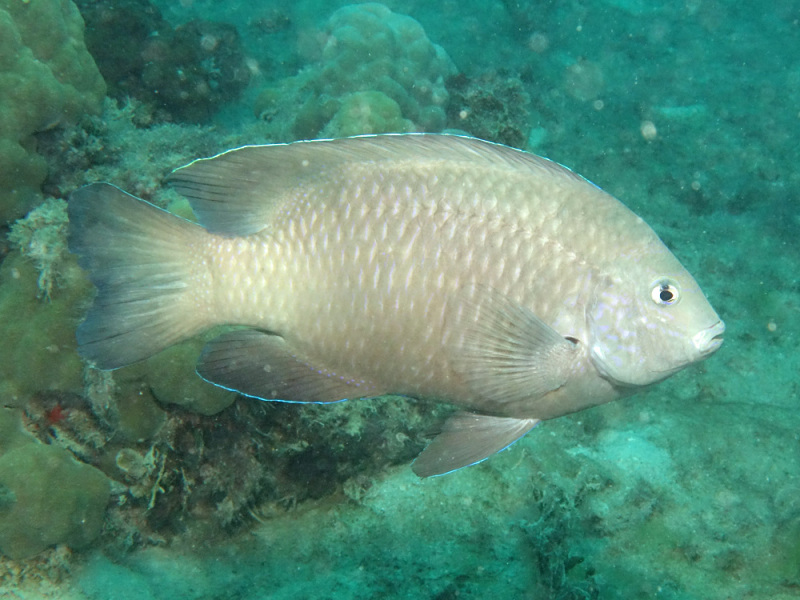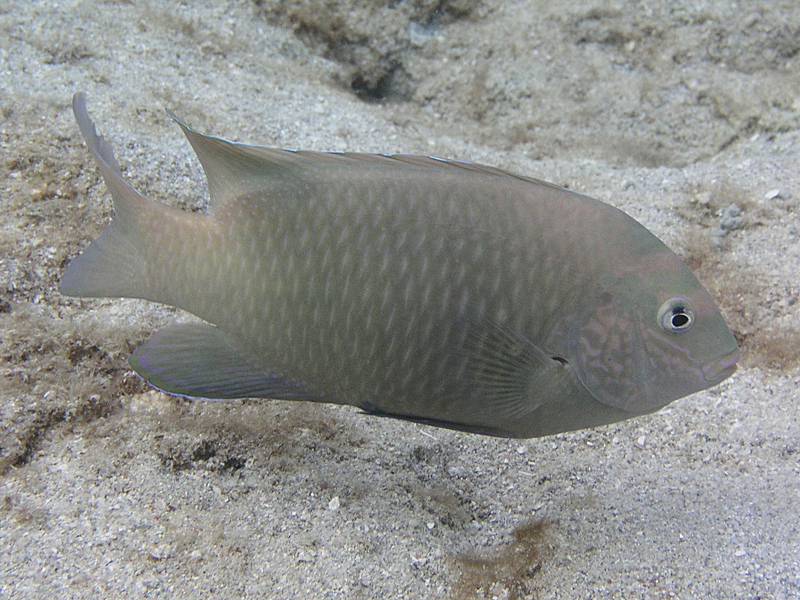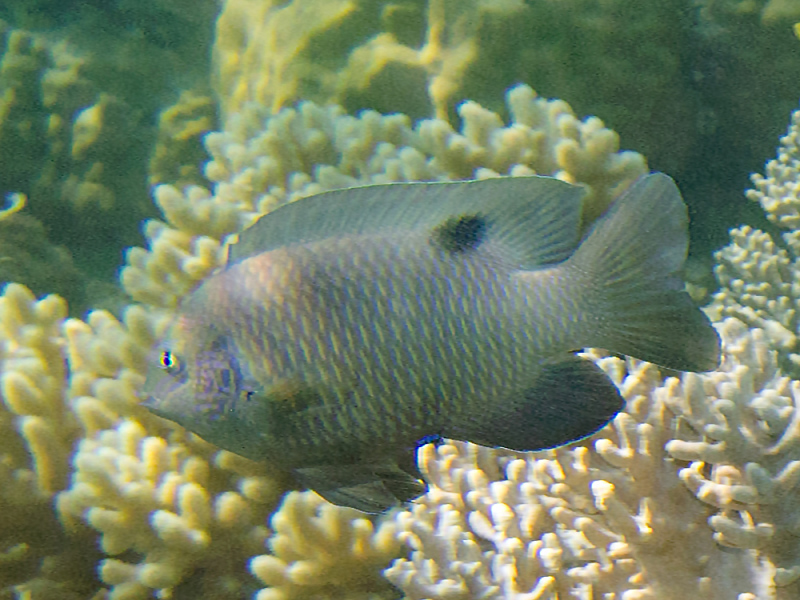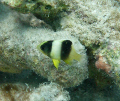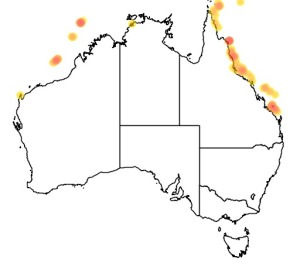Colours
Distinguishing features
A small to medium sized fish with an off-white body and a series of dark black blotches along the forehead and upper back, tending to an overall pinkish grey in large adults. Adults have pinkish facial markings. Usually seen near its algal farm on sandy substrata along the edges of shallow reefs. The biggest damselfish - maximum size about 20cm.
Size
- Up to 20 cm (Standard length)
Depth range
- Depth range data is not yet available.
Synonyms
Distribution
Distribution and habitat preferences
Shallow sandy or rubble areas adjacent to reef margins in lagoonal and backreef habitats.
Found in most sheltered locations around the Island.
Behaviour
The White Damsel is plentiful around Lizard Island and has the peculiar habit of farming algae on calcareous sand substrata, feeding on the algae and the organic detritus trapped within it. The adults are very large damselfish and prolific breeders, flooding the reef habitat with recruits during the summer months. These small juveniles settle to exposed rubble zones on shallow reef flats and subseqently suffer very high mortality, with only a few individuals surviving their first year. Once the juveniles reach the adult size class and establish a territory, they can live for more than 10 years.
Web resources
References
- Bay, L.K. (1999). Interactions among the territorial behaviour, spatial distribution and habitat use of four congeneric damselfishes (Dischistodus: Pomacentridae), Honours thesis, James Cook University, Townsville. LIRS catalog number 603.
- Bay, L.K., G.P. Jones and M.I. McCormick (2001). Habitat selection and aggression as determinants of spatial segregation among damselfish on a coral reef, Coral Reefs, 20: 289-298. LIRS catalog number 721.
- Booth, D.J. (2002). Distribution changes after settlement in six species of damselfish (Pomacentridae) in One Tree Island lagoon, Great Barrier Reef, Marine Ecology Progress Series, 226: 157-164. LIRS catalog number 90094.
- View all references
